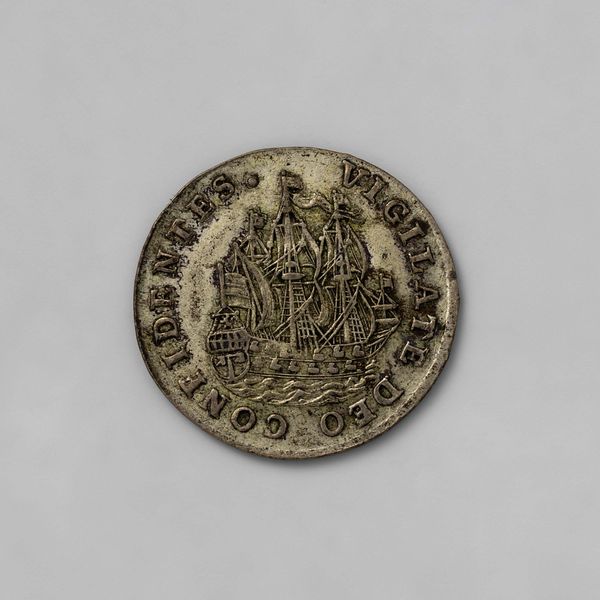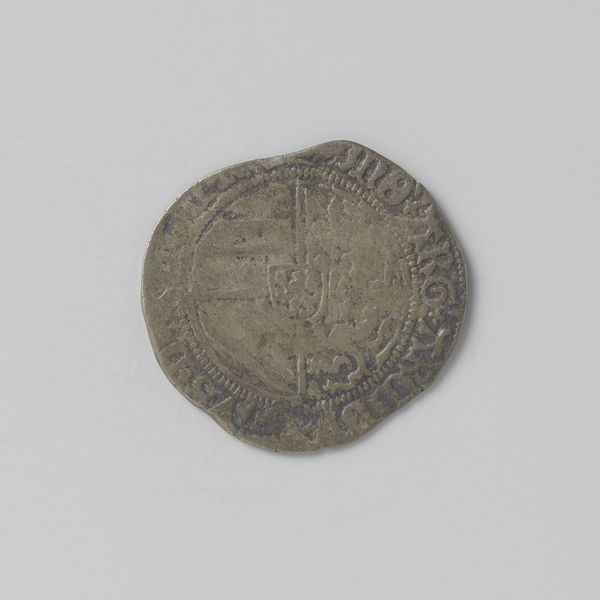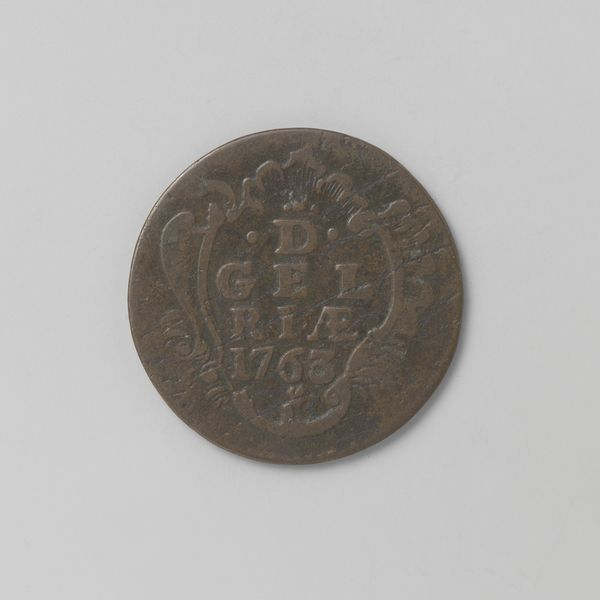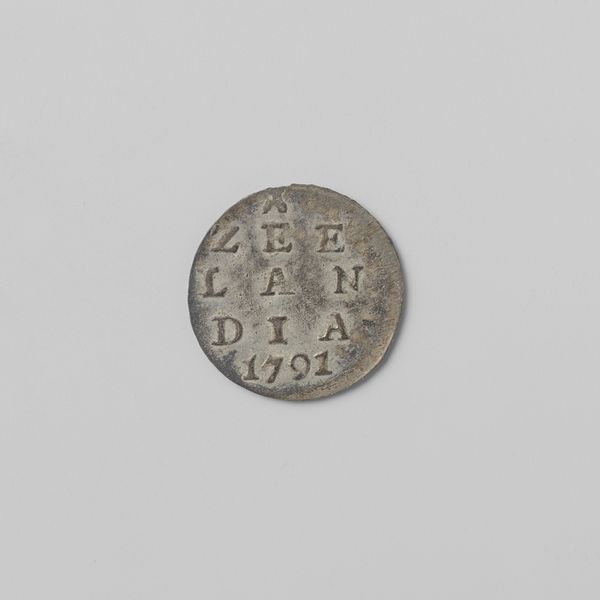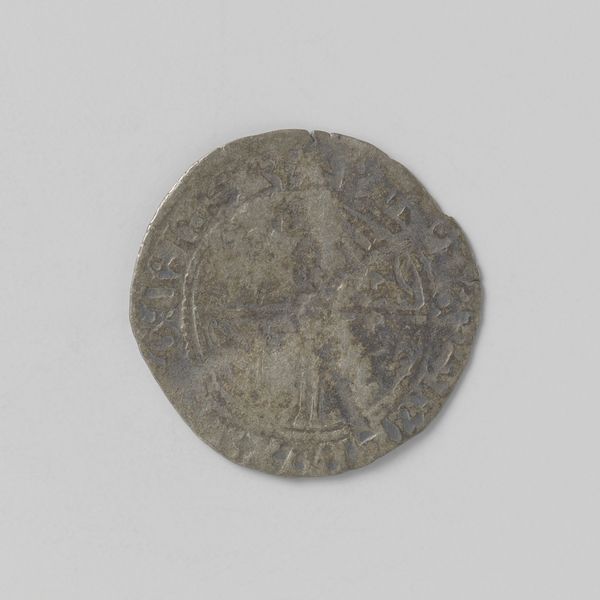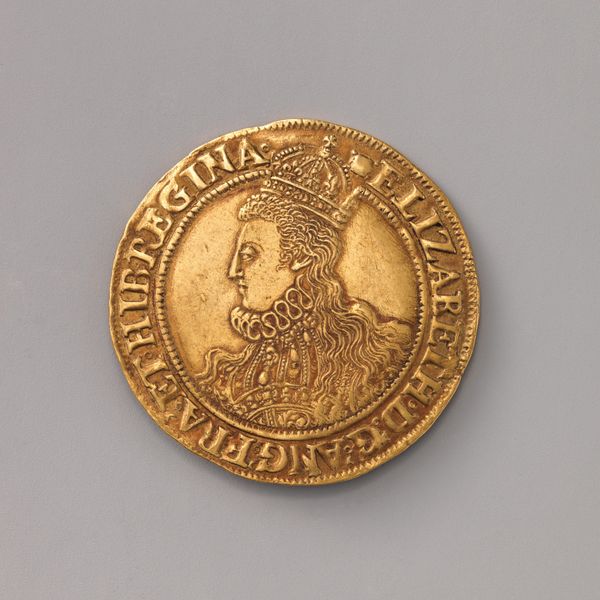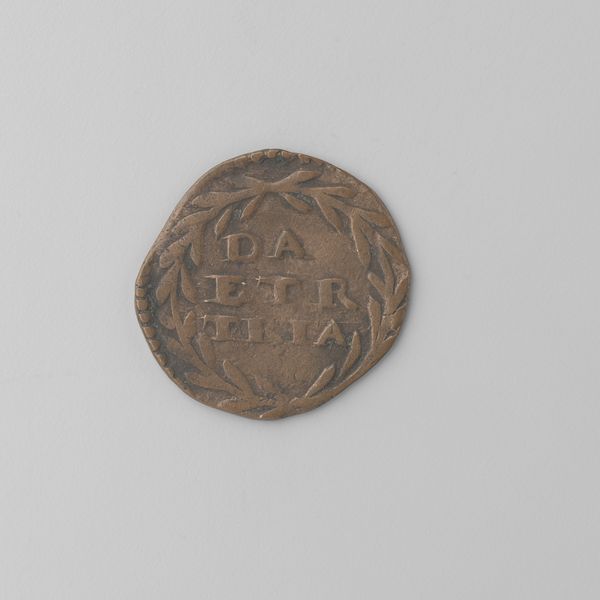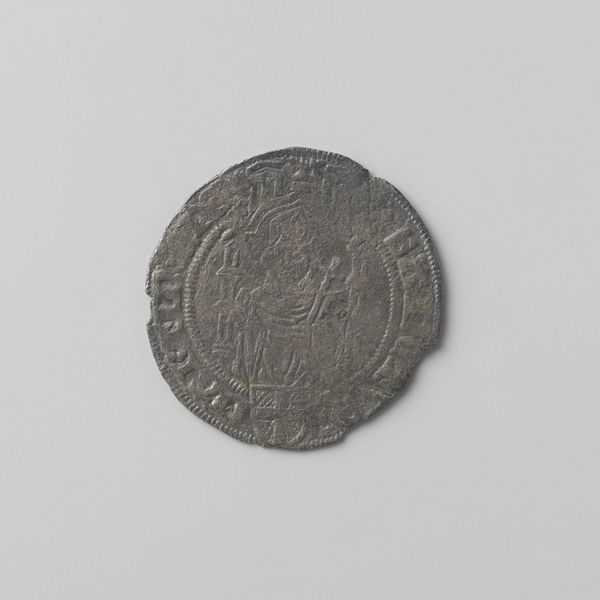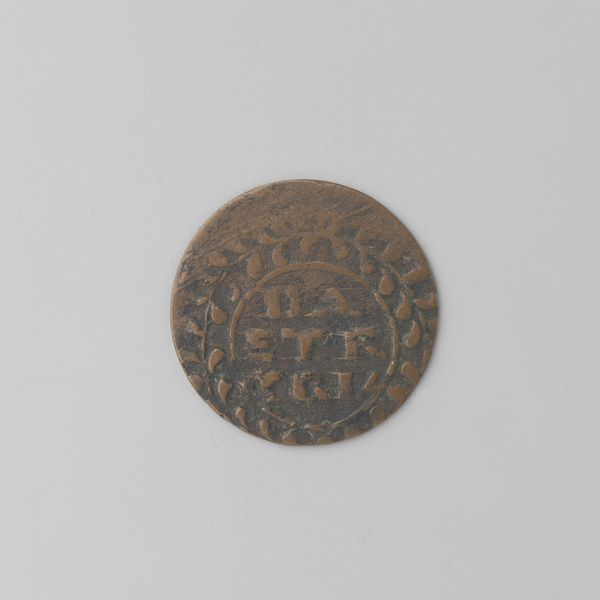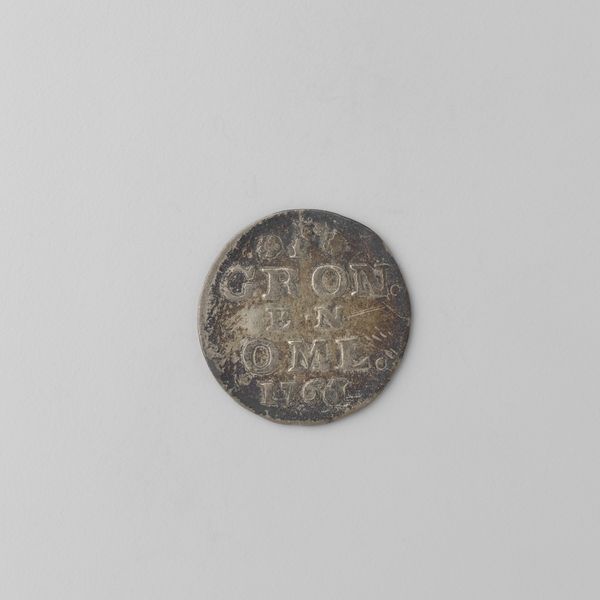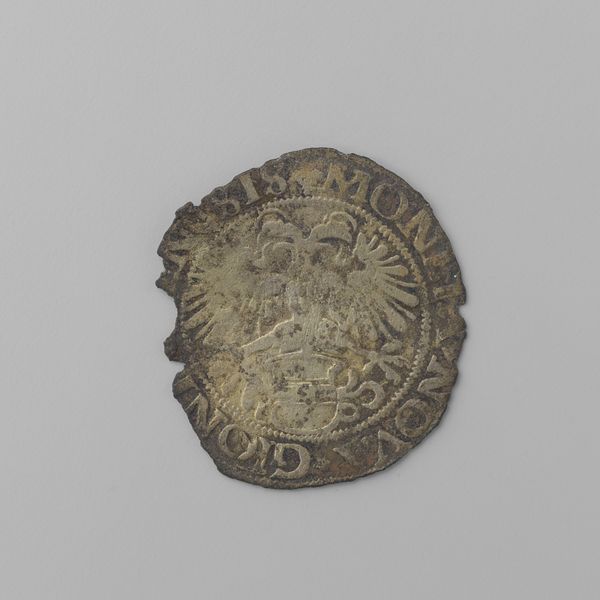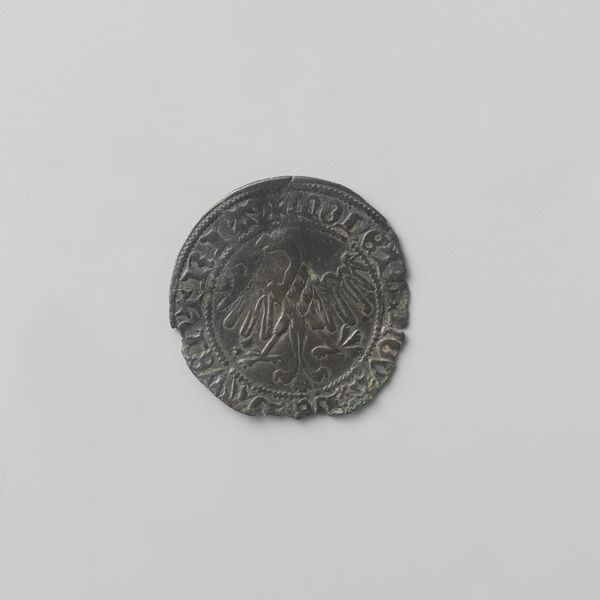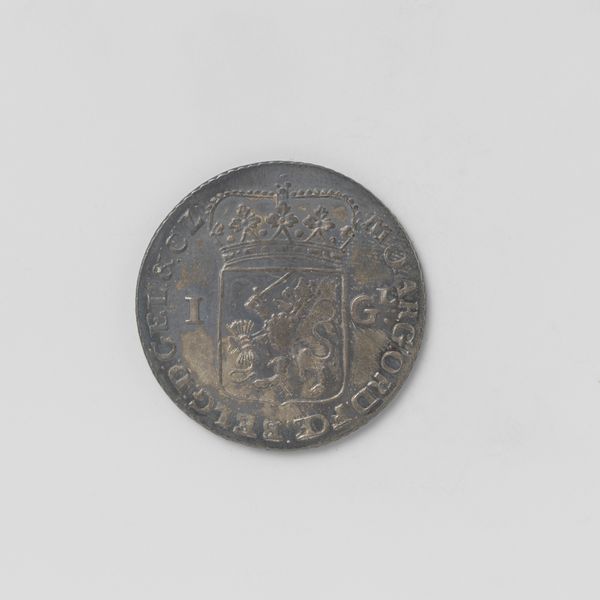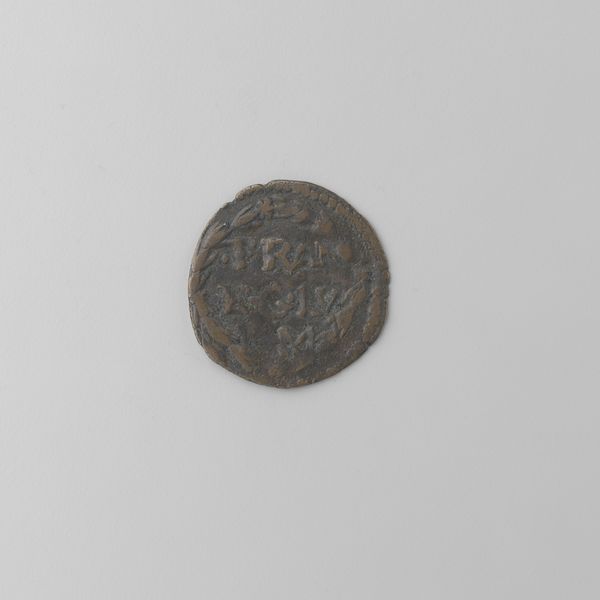
bronze
#
portrait
#
baroque
#
bronze
#
11_renaissance
Dimensions: Diam. 1 11/16 in. (4.3 cm); thickness 1/8 in. (0.3 cm); Wt. 0.8 oz. (22.7 g)
Copyright: Public Domain
This bronze medal portraying Vicenzo II Gonzaga, Duke of Mantua, was created by Gasparo Morone in the 17th century. Medals like this were typically cast using a lost-wax process, where a wax model is made, encased in clay, then melted out to leave a mold for the molten bronze. Afterwards, the metal would have been chased to sharpen the details of the Duke's portrait, from the elaborate ruff to his stern gaze. The use of bronze gives the medal a sense of permanence and authority, fitting for a ruler. Although this was not necessarily the case with all lost-wax casting, it is likely that this was made in a workshop environment, with Morone overseeing the division of labor. The medal can thus be seen as an object imbued with the power of the Duke, the skill of the artist, and the coordinated effort of craftspeople. By attending to the material qualities and production processes of this medal, we can appreciate how it embodies social status and the organization of skilled labor in its very form.
Comments
No comments
Be the first to comment and join the conversation on the ultimate creative platform.
